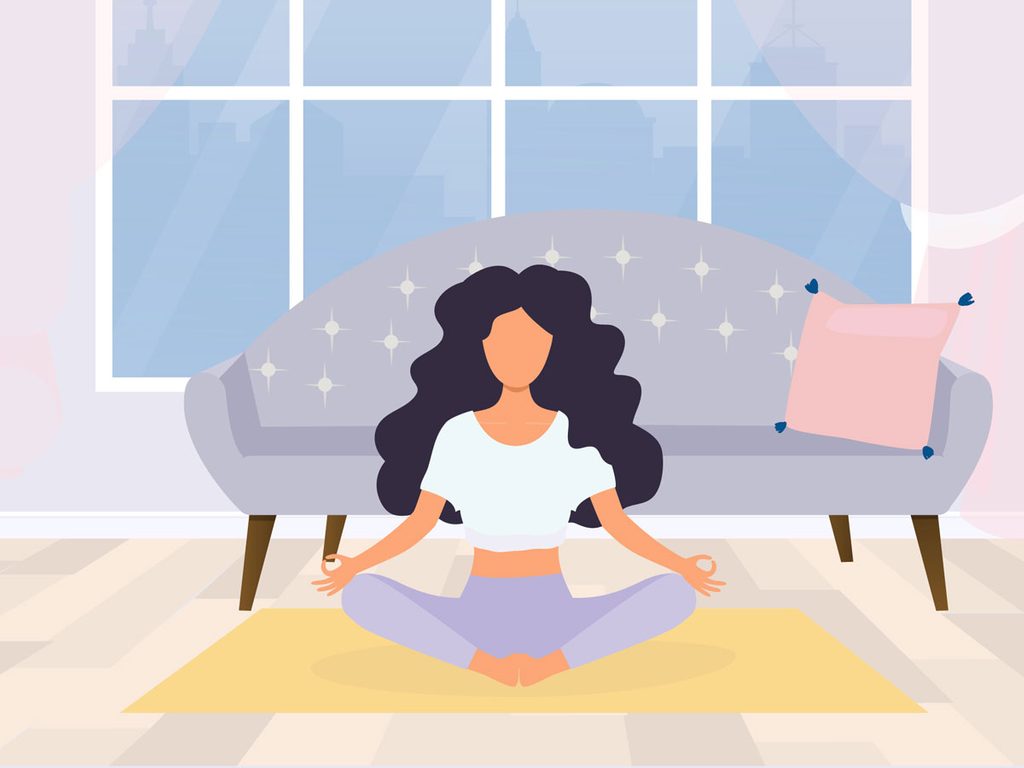A Science-Tested 10-Minute Anxiety Fix That Really Works

A 10-minute meditation may help people with anxiety perform better on tasks, a study suggests.
Anxiety disorders are one of the most common mental health problems in Canada, affecting approximately one in 10 Canadians. Maybe that’s not so surprising given the demands of our modern world and constantly “on” technology, leading us to burn the candle at both ends, lose sleep, and feel overwhelmed. While eliminating some of the pressures may help, setting aside 10 minutes for mindful meditation could help people with anxiety, according to a study from the University of Waterloo.
Researchers recruited 82 volunteers with diagnosed anxiety for a study, which was published in the May 2017 issue of the scientific journal Consciousness and Cognition. The volunteers completed a computer task that required them to pay close attention for 15 minutes without a break. “We first measured what types of thoughts participants were having and, second, how well they were able to stay focused,” says Mengran Xu, a researcher and PhD candidate at Waterloo.
Next, participants were randomly assigned to two conditions: Half practised a mindful breathing meditation for 10 minutes, and the other half listened to an audiobook of The Hobbit for 10 minutes. Then the participants completed the same computer task again.
The researchers discovered three key benefits, says Xu: Meditation helped anxious individuals stay focused; it allowed them to train their attention on the task in front of them; and it enabled them to shift their thoughts away from future concerns and onto, as Xu says, “the ‘here and now.'” His findings build on other research demonstrating how effective meditation can be for anxiety disorders.
Want to try a little meditation to reduce anxiety?
Xu suggests practising a brief meditation immediately before a task. “There are many apps and audio recordings available on the internet. Again, based on our results, we recommend following a guided meditation (in the form of audio recordings). To practise meditation, it is important to focus your attention on the external stimuli, which include bodily sensations (i.e., how we sit in the chair) and breathing (i.e., the sensation of air flowing in and out).”
But Xu emphasizes that the most important part of practising meditation is what to do when you catch your mind wandering. “Simply acknowledge that your mind has wandered, and gently direct your attention back to your breath,” he says. Try your best to avoid these other meditation mistakes.
 How to Manage Anxiety Triggers" width="295" height="295" />
How to Manage Anxiety Triggers" width="295" height="295" />





